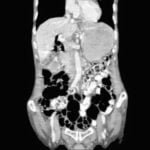
Colon cancer can be prevented here is how .
Colorectal cancer (CRC) is one of the most commonly occurring cancers and causes of cancer death
Country-specific incidence and mortality rates are available from the World Health Organization GLOBOCAN database .
However, when detected early , colon cancer can be treated and over the past decades the mortality due to colon cancer has declined due to regular screening
Colorectal cancer screening
Screening is the process of looking for cancer or precancer in people who have no symptoms of the disease. Regular colorectal cancer screening is one of the most powerful tools for preventing colorectal cancer. .NEVER UNDERESTIMATE IT
How does it work ?
From tiny abnormal cells to cancer : It takes 10-15 years for small polyps to develop into cancer .With regular screening these polyps can be removed and thus cancer can be prevented.
Screening can also find colorectal cancer early, when it’s small and easier to treat.
If you’re 45 or older, start getting screened for colorectal cancer.
How To get screened ?
1. Fecal immunochemical test (FIT) for blood in stools.
FIT test detects directly hemoglobin in stools and may be done yearly to detect colorectal cancer at an early stage .
Some advantages over fecal occult blood test are as under
- Dietary and medication restrictions are not needed .
- No Need to stop Aspirin or Pain killers
- FIT requires only one sample and not 3 samples as is required for stool for occult blood
- However, FIT container should be returned to the laboratory within 24hrs
If FIT is positive go for Colonoscopy
If you have a strong family history of colorectal polyps or cancer, talk with your doctor about your risk
You might benefit from genetic counselling to review your family medical tree to see how likely it is that you have a family cancer syndrome like Lynch’s syndrome , Familial polyposis syndrome ,
Start screening colonoscopy at an early stage if your father , brother or close relation had colorectal cancer.
While non modifiable risk factors like age , family history can not be modified .
Some risk factors can be modified and colorectal cancer prevented or detected early.
However, here is a word of caution that having a risk factor never means one can always get colorectal cancer . It is also a fact that people even without risk factors can develop colorectal cancer. In both circumstances , screening holds a promise to detect colon cancers at an early stage.
You may be able to modify various risk factors that lead to cancer as follows:
1. Body weight, physical activity, and diet
You might be able to lower your risk of colorectal cancer by managing your diet and physical activity.
Weight: Being overweight or obese increases the risk of colorectal cancer in both men and women, but the link seems to be stronger in men. Staying at a healthy weight may help lower your risk. Obesity leads to so many medical problems in addition.
Physical activity: Being more active lowers your risk of colorectal cancer and polyps. Regular moderate to vigorous activity can lower the risk. Limiting your sitting and lying down time may also lower your risk. Increasing the amount and intensity of your physical activity may help reduce your risk.
Diet: Overall, diets that are high in vegetables, fruits, and whole grains, and low in red and processed meats, probably lower colorectal cancer risk. Many studies have found a link between red meats (beef, pork, and lamb) or processed meats (such as hot dogs, sausage, and lunch meats) and increased colorectal cancer risk.
Vitamins, calcium, and magnesium Take diets rich in Vitamin D, Folate , calcium
Add more grains to your diet , it helps (1)
2.Alcohol: Several studies have found a higher risk of colorectal cancer with increased alcohol intake, especially among men. It is best not to drink alcohol it leaves no organ un affected and there is no safe dose
3.Stop smoking
Quitting smoking may help lower your risk of colorectal cancer and many other types of cancer, too.
References :
- American cancer society .
- Cancer research UK
View in browser :The Health Guide
Join the mailing List of The Health Guide
Join the mailing list!
Get the latest articles delivered right to your inbox!

